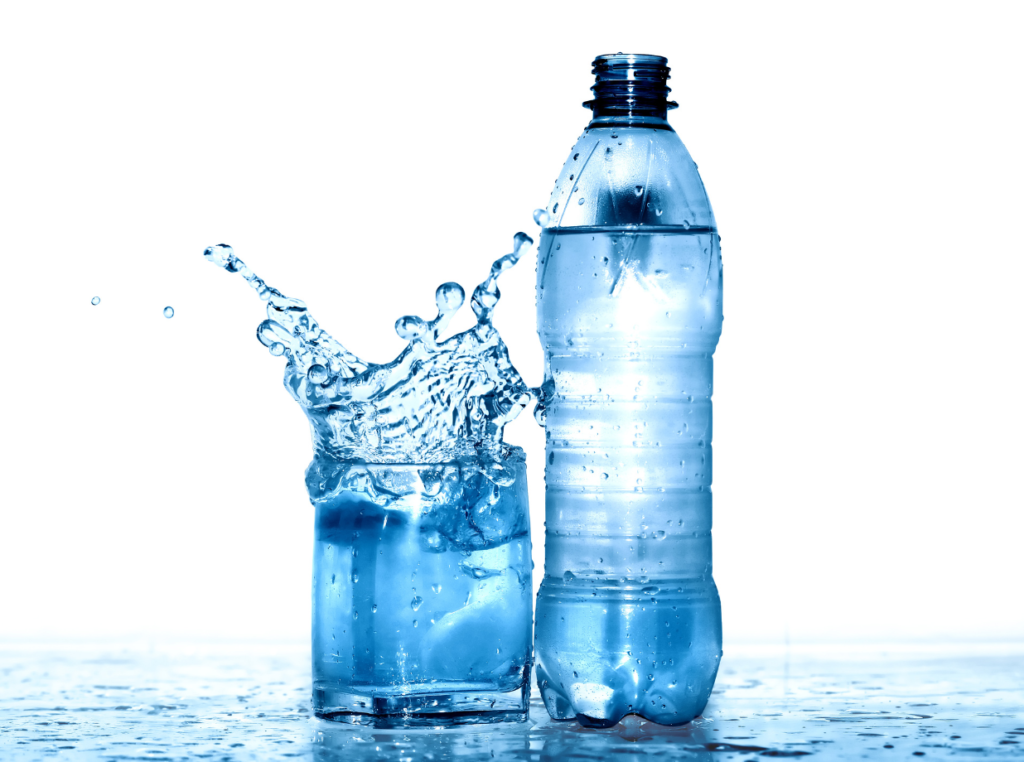Have you ever wondered why professional chefs and master brewers often emphasize the quality of water in their recipes? It’s simpler than you think: the water you use can make or break the flavors and aromas of your dishes and drinks. Enter distilled water — a pure, mineral-free option that’s gaining popularity among home cooks and brewers. If you’re curious about how this simple ingredient can elevate your culinary and brewing game, keep reading.
“Distilled water is free from impurities that can alter the taste and quality of your food and beverages,” says culinary expert Jane Davis.
Using distilled water can help you achieve consistent, enhanced flavors, whether you’re brewing a fresh pot of coffee or whipping up a gourmet meal. Ready to discover how this pristine water can be your secret weapon in the kitchen? Let’s dive in.
Unlocking the Potential of Distilled Water in Your Kitchen
Distilled water is much more than just a purified form of H₂O; it’s a versatile tool that can significantly elevate your culinary and brewing endeavors. Because it’s free from impurities like minerals, chemicals, and bacteria, distilled water ensures that the true flavors of your ingredients shine through, untainted by external factors. Ever wondered why your homemade bread doesn’t quite taste like the bakery’s? The answer might lie in the water you’re using.
Enhancing Flavors in Cooking
When you cook with distilled water, you’re starting with a blank canvas. This can be particularly beneficial in recipes where the water absorbs flavors and impurities from the tap can skew the results. For making soups, broths, and sauces, distilled water offers a pure medium that allows the natural flavors and aromas of your ingredients to dominate. The same goes for boiling pasta or rice; you might be surprised at how much cleaner and more enjoyable the final dish tastes.
Optimal Brewing
Brewing tea or coffee? You’ll be delighted to know that distilled water can radically improve the clarity and taste of your brew. Tap water often contains minerals and chemicals that can interact with your coffee beans or tea leaves, altering their natural flavor profile. By using distilled water, you ensure every sip is as flavorful and aromatic as possible, devoid of any off-tastes or unwanted substances. Many coffee aficionados swear by the use of distilled water to perfect their morning ritual.
Precision in Baking
Baking is a science, and the chemistry involved demands precision. Using distilled water in your baking recipes can provide consistent results every time. Whether you’re crafting delicate pastries or robust loaves, the absence of contaminants allows for better yeast activation and fermentation. This means your dough will rise as expected, giving you that perfect crumb and texture that’s often hard to achieve.
Now that you understand the potential hidden in every drop of distilled water, it’s time to experiment. Swap out your tap water for distilled water in your next recipe and taste the difference for yourself—you might never go back!
The Benefits of Using Distilled Water for Your Plants
Crafting Homebrews: Why Distilled Water Matters
When it comes to homebrewing, water is more than just a solvent; it’s an essential ingredient that can significantly impact the flavor, clarity, and overall quality of your brew. That’s where distilled water steps in as a game-changer. Distillation removes impurities, leaving you with water that’s pure, neutral, and free from contaminants that might otherwise interfere with the fermentation process.
Why Distilled Water? For starters, distilled water doesn’t introduce any unwanted flavors or minerals into your brew. Unlike tap water, which can contain high levels of chlorine or chloramine, distilled water ensures that the ingredients you carefully selected are the stars of the show. This neutral profile allows for better control and consistency in the brewing process.
Moreover, distilled water reduces the likelihood of contamination. It’s free from bacteria, viruses, and other microorganisms that could spoil your brew. This is particularly crucial for brewers aiming for long fermentation periods or specialized flavors that require extended aging. By minimizing the risk of unwanted microbial activity, you can achieve a cleaner, more controlled fermentation.
Adjusting for Perfection Though it’s pure, distilled water may require some mineral adjustment depending on what you’re brewing. Different styles of beer, for example, benefit from varying levels of calcium, magnesium, and sulfates. The advantage of starting with distilled water is that you can add precisely the minerals you need, creating a custom water profile that perfectly suits your recipe.
Experienced brewers often use mineral salts to adjust distilled water to optimize the enzyme activity in mashing and to enhance the hop or malt characteristics. This method allows homebrewers to tackle diverse brewing styles with precision, from a crisp pilsner to a rich stout, ensuring each batch is crafted to perfection.
Distilled Water vs. Tap Water: What You Need to Know
When it comes to cooking and brewing, the water you use can significantly impact the flavor and quality of your final product. Tap water, depending on your location, often contains minerals, chlorine, and sometimes even contaminants or pesticides. These can alter the taste of your dishes or beverages, especially in recipes that rely on delicate flavors.
Distilled water, on the other hand, offers a level of purity that tap water cannot match. By undergoing the distillation process, distilled water eliminates impurities such as salts, minerals, and organic materials. This results in water that is exceptionally pure, making it an ideal choice for preserving the integrity of flavors in your cooking and brewing endeavors.
While tap water may sometimes be safe and convenient, it can introduce unwanted tastes and compounds. These additional elements can interfere with the subtle notes in your tea, coffee, soups, or sauces. In contrast, distilled water ensures that the pure, intended flavors of your ingredients shine through, giving you greater control over the taste and quality of your creations.
Moreover, the absence of minerals in distilled water means it can help prevent mineral buildup in your brewing equipment, ensuring a longer lifespan and better performance. Whether you’re a culinary enthusiast or a home brewer, opting for distilled water can elevate the quality of your homemade delights, leaving you with a more refined and enjoyable experience.
Real-World Examples: Chefs and Brewers Who Swear by Distilled Water
Renowned chefs and homebrewers alike have uncovered the benefits of using distilled water in their culinary and brewing endeavors. For instance, Chef Thomas Keller, celebrated for his meticulous approach to French cuisine, employs distilled water in his kitchens to ensure the purest flavor profiles. By eliminating the variability introduced by tap water, Keller can maintain consistent taste and quality in his signature dishes.
In the world of brewing, distilled water offers brewers the control they need over their craft. John Kimmich, founder of The Alchemist Brewery and creator of the acclaimed Heady Topper, integrates distilled water into his brewing process to create a balanced and controlled base. This level of precision enables him to achieve the optimal hop flavors and aroma that his brews are known for.
Consider the insights from these undeniable experts when trying to refine your own cooking or brewing practices. Just as a painter selects their tools with care, choosing distilled water can enhance the clarity and integrity of your flavors.
Conclusion
Incorporating distilled water into your cooking and brewing routines can be a transformative move. Not only does it safeguard the purity of your ingredients, but it also delivers a cleaner, more vibrant taste to your dishes and beverages. By removing contaminants such as chlorine, pharmaceuticals, and other impurities present in tap water, distilled water ensures that the true flavors of your food and drinks aren’t masked or altered.
Consider it an investment in both health and flavor. While tap water is ubiquitous and easy to access, the benefits of switching to distilled water—especially in culinary applications—are substantial. You’ll be joining a growing community of chefs, home cooks, and brewers who appreciate the finer points of water quality and its direct impact on taste and health.
So, the next time you reach for water while prepping a meal or crafting a new brew, give distilled water a try. Its ability to elevate your culinary and brewing experiences may surprise you, leading to meals and beverages that are as refreshing as they are flavorful.
FAQs: Common Questions About Using Distilled Water in Cooking and Brewing
Curious about how distilled water can elevate your culinary and brewing endeavors? You’re not alone! Here, we answer some of the most frequent questions that home chefs and brewers like yourself have about using this pristine water in their creations. Read on to discover how distilled water can be your secret ingredient in crafting the finest flavors and perfecting your favorite recipes.
Why should I use distilled water in cooking?
Using distilled water in cooking can enhance the flavors of your dishes. Because it lacks impurities and minerals found in tap water, it allows the true taste of your ingredients to shine. This is particularly beneficial in recipes requiring delicate flavors, like soups, sauces, and steamed dishes, where the purity of water makes a noticeable difference.
Is distilled water better for brewing coffee or tea?
Yes and no. Some coffee aficionados believe that distilled water provides a purer taste. However, the Specialty Coffee Association of America suggests that a certain level of minerals is ideal for optimal flavor extraction. For tea, distilled water can highlight the subtle notes of premium tea leaves, but using a blend of distilled and mineral water might offer the best of both worlds.
Can I use distilled water in my bread maker?
Absolutely! Using distilled water in your bread maker can improve the texture and rise of your bread. The absence of impurities and chlorine ensures that the yeast activates more efficiently, resulting in a better crumb and crust. It’s a simple change that could elevate your homemade bread to bakery-quality.
Does distilled water make a difference in brewing beer?
Using distilled water in brewing beer allows you to have complete control over the mineral content. Brewers often add specific minerals to distilled water to achieve the desired flavor profile and style for their beer. It’s an excellent way to ensure consistency and precision in your homebrew.
How does distilled water affect the taste of soup and stews?
Distilled water can enhance the flavors in soups and stews by providing a clean slate. Since it’s free from any off-tastes or contaminants, the natural flavors of your ingredients stand out more. It ensures that every spoonful delivers a pure, unadulterated taste.
Should I use distilled water for cooking pasta?
While you can use distilled water for cooking pasta, the benefits might be less noticeable compared to other cooking methods. However, doing so can prevent any unwanted flavors from affecting your pasta, especially in dishes where the pasta water is used as part of the sauce.



